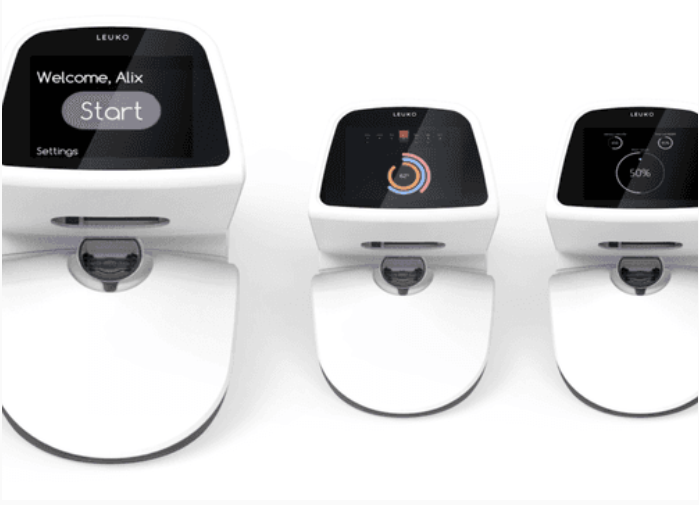Portable Fingernail Scanner for Cancer Patients

Each year, one million people in the U.S. undergo chemotherapy. Globally, cancer is the leading cause of death, claiming 10 million lives in 2020.
Inspired by the need to improve cancer treatment, researchers at MIT developed a portable monitor to help patients track their white blood cell count. This device could potentially reduce hospitalizations by 50% in cancer cases.
Leuko Labs was founded at the Madrid-MIT M+ Vision Consortium (MIT linQ), an initiative that promotes medical entrepreneurship by connecting researchers with MIT faculty to address critical medical issues. Leuko’s founders targeted the challenge of monitoring white blood cell count, which currently relies on blood draws.
Cancer patients receive chemotherapy about every 21 days, which lowers their white blood cell count and increases infection risk. Leuko co-founder Carlos Castro-Gonzalez highlighted that one in six cancer patients undergoing chemotherapy develops an infection due to critically low white blood cell levels, sometimes resulting in death from treatment rather than the disease.
Monitoring white blood cell count could prevent many infections in chemotherapy patients. Leuko developed a noninvasive device allowing patients to frequently check their white blood cell count, improving the precision of chemotherapy dosages. Castro-Gonzalez found that many patients could tolerate higher chemotherapy doses during his clinical rotations, leading him to the MIT linQ health care innovation program.
PointCheck, an optics-based device, checks white blood cell count through the fingernail. It resembles a futuristic fingerprint scanner and can detect white blood cells as they pass through the narrow capillaries at the base of the nail. Although it can’t provide an exact count, it can determine if patients are above or below the dangerous threshold of 500 neutrophils, the most common type of white blood cell.
Leuko Labs plans to measure other blood components in the future but must first pass a rigorous FDA approval process. PointCheck is still investigational, with a study to be submitted to the FDA this year. Previous studies showed the device was 95% accurate.
PointCheck could significantly improve cancer treatment and reduce major complications, benefiting millions of patients and doctors worldwide.